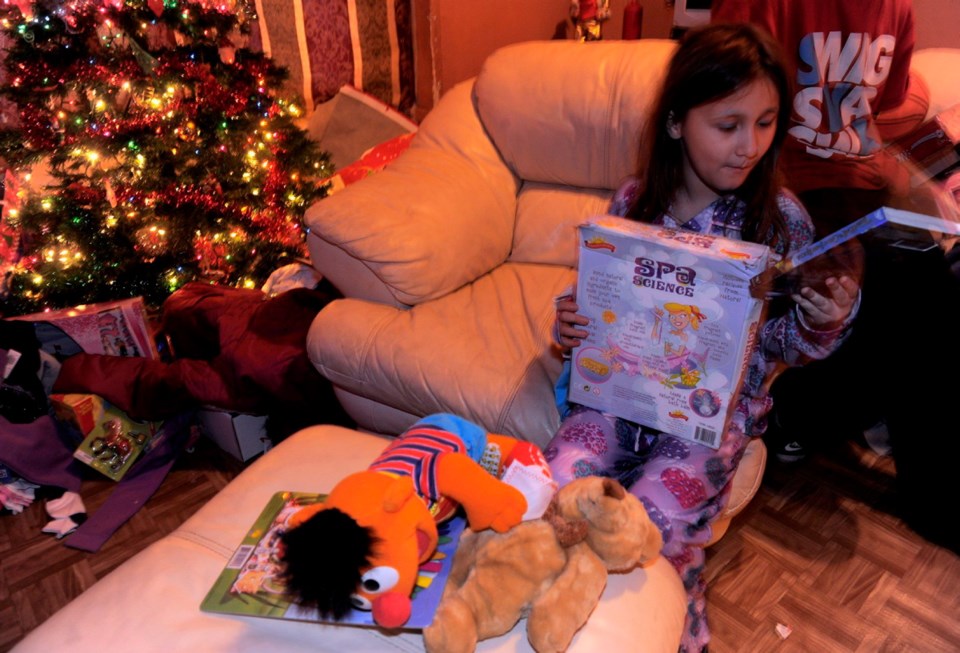Thank-you letters — in pen, pencil, crayon or even pictures — are essential for keeping children thankful during the holidays, Victoria religious leaders and childhood experts say.
“My wife is the fascist when it comes to the thank-you notes,” said Rabbi Harry Brechner of Congregation Emanu-El. “They have to be done and there must be this sense of showing gratitude, and it’s important to talk about it.”
He said gratitude or thankfulness is essential for parents and children to establish a sense of what’s important in life.
Brechner said his family puts great stock in vacations and other shared experiences. Such experiences, and the memories they generate, are of greater value to the Brechner family than the gifts of “stuff” that are so abundant in the modern world.
He said many Jews give gifts during Hanukkah, largely as a response to the Christmas gift-giving tradition. While Brechner said he makes no judgments about Jewish families that give or don’t give during this season, it can be difficult for parents to ensure their kids remain thankful at this time of year because of the sheer volume of presents.
Ruth MacIntosh, family life minister at the Anglican Christ Church Cathedral, agrees that ensuring kids have a sense of gratitude is sometimes tough during the holiday season.
“It can be hard to remain grateful during this time of year because of the magnitude of it,” MacIntosh said.
But she said it’s essential to keep up the effort to live with a sense of gratitude and teach it to kids.
That gratitude is linked to what really matters to families and people and to the things we value as communities, such as caring, empathy and compassion for others, she said.
“Most of us, we pass on our values to our children by the way we live our lives, the way we live them as individuals and the way we live them as families,” she said. “Practice and ritual around thankfulness in a home will go a long way.”
It can be as simple as offering a prayer of thanks before a meal. “When we are giving thanks, it just sets a tone in our family that is different than when we don’t,” MacIntosh said.
And, like Brechner, she said it’s important to talk about what gifts are actually worth.
Whether it’s the cost in money to the giver, the work, the effort, the thought or the love, kids should consider what has gone into the gifts they have received.
MacIntosh said even the gift that was perhaps not entirely appropriate or well-received can be an opportunity to learn about values and being thankful.
“These are wonderful moments to talk with our kids about why someone might have picked that gift and why they actually wanted to give them a gift,” she said. “It’s important to let our kids know the world is not obligated to shower them with presents. But when people choose to do that, they do it out of a place of care and thoughts for them.”
Cindy Knott, co-ordinator of the Vancouver Island Positive Parenting Program, said it’s important to give children a sense of contentment.
Fostering a feeling of contentment with what they have goes a long way to raising an emotionally resilient child who has a positive, optimistic outlook.
“Instead of being so externally focused on stuff and things, we can encourage our kids to slow down, get out and take in activities and help them appreciate the things which are not material.”
For example, she knows of one little girl who went with her mother to a soup kitchen one Christmas to serve supper to the poor. It was a moving experience for the child, who now looks forward to helping again.


